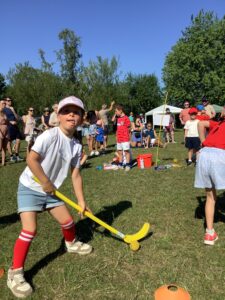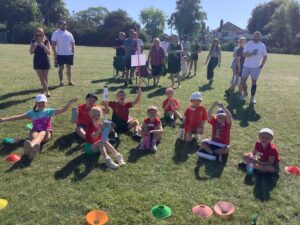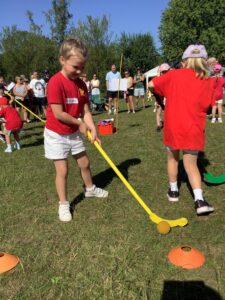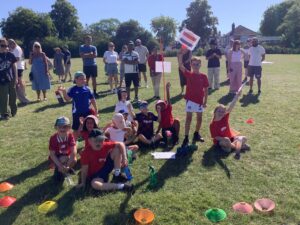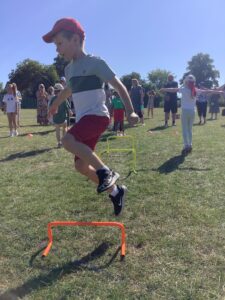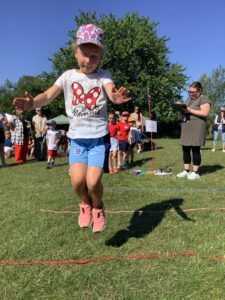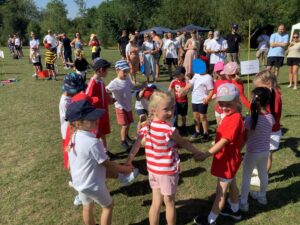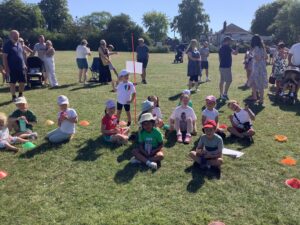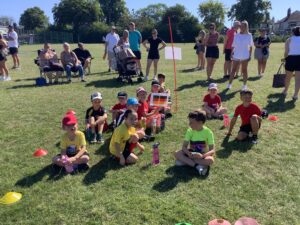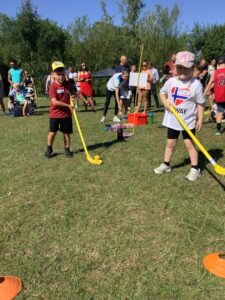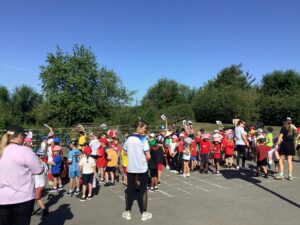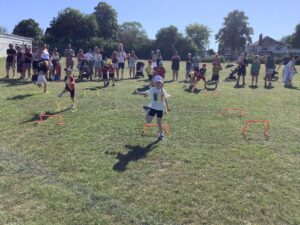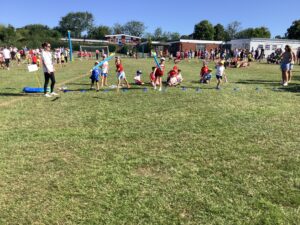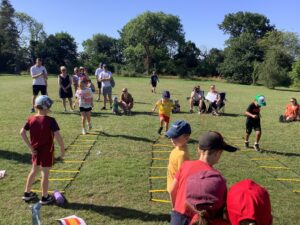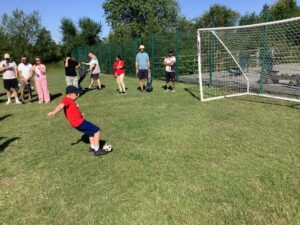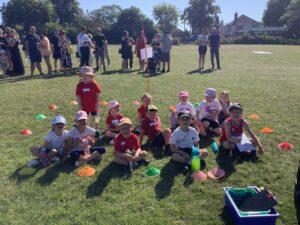Welcome to Reception
A reminder that our ‘Welcome to Reception’ meeting is on Wednesday 17 September, 2025 at 6pm. This is held at school.
Following our first welcome session, this is an opportunity to find out some basic ‘need to knows’ about life in Reception.
We look forward to seeing you there.
Reception Baseline Assessment
Packed Lunches
Does your child have a packed lunch at school? If so, please download our Guide to Healthy Packed Lunches.
Did you know that popcorn is a choking hazard for children under 5? Lot’s of people don’t! The Food Standards Agency. has published the following advice on how to prepare food safely for your young child.
Welcome to Reception!
We are looking forward to welcoming the children to Reception this week and next week!
Here’s a sneaky peek at some of the classroom areas.
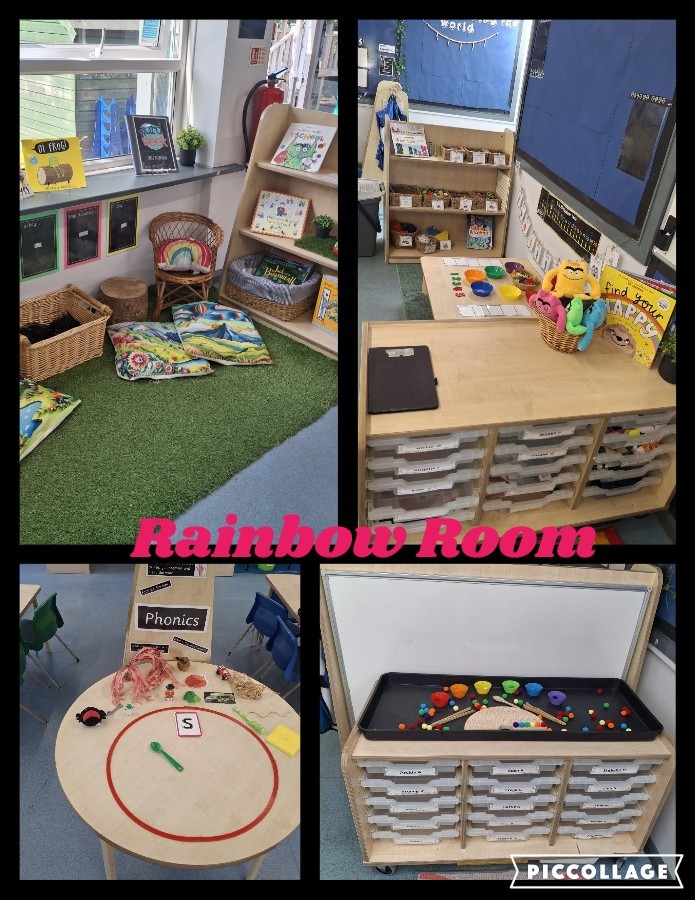
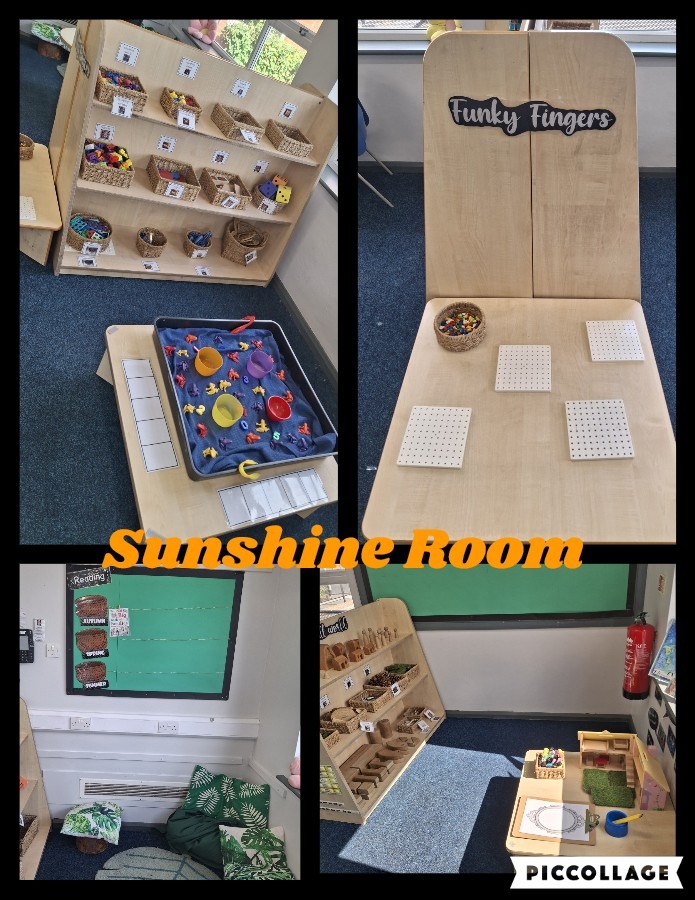
The teaching team have been having fun in some other areas of the classroom- can you see where we have been playing? Can you remember the name of your class teachers?

See you very soon!
Me and my family!
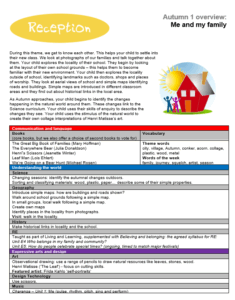
The finale- 2025!
Wow what a fun-filled last week! A fitting end to a fantastic year full of growing, learning and friendship.
Understanding the world; garden to table!
The children enjoyed the results of their planting efforts this week, as the potatoes we planted a few weeks ago were ready to cook and eat! It is so important to teach children where all of their food comes from and being involved in the growing process from start to finish, is a perfect (and yummy!) way to learn.


The Beach Party
On Thursday, we had an amazing time at our Reception and KS1 beach party! This year’s party was made even more special, with a visit from Mr Whippy Leeds. Children (and adults) enjoyed a visit to the van for an ice-cream or ice-lolly. THANK YOU Mr Whippy Leeds, for helping us make some super-special memories.


The Selfie Station
The children have enjoyed being in charge of taking the photos this week- take a look out our selfie-station snaps!



A final message
The Reception team would like to thank you all for your partnership and support this year. We’ve had a great year and are so proud of all of the children. We wish you all the best as your child moves up to year one and continues their learning journey at Scholes (Elmet) Primary School.
We can’t sign off before a final goodbye to Miss Parling, who has been with us in Reception for a whole five years and at our school for ten years! We are sending the warmest wishes for the future and your upcoming adventures.
A big welcome to Mrs Brown, who joins the Reception team in September.
Have a happy and healthy Summer everyone- we’ll see you in September!
Sports Roundabout
Team Norway was victorious at the Sports Roundabout but the main purpose was to enjoy ourselves, and we did that!
The weather was just about bearable while we jumped, ran kicked and threw our way around the field.
Thanks to all the families who came to support their children.
Being Healthy
This week, we’ve been learning all about Being Healthy and Reception have thoroughly enjoyed joining in with a range of themed activities.
Tuesday – Online Assembly
We kicked off the week by joining other classes across Sphere Federation for an online assembly focused on healthy living. We explored the Eat Well guide and learned about the different food groups.
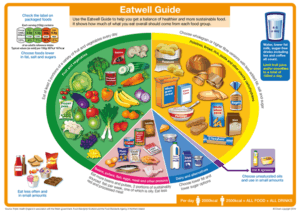
The children looked at various packed lunch examples and discussed simple ‘food swaps’ they could make to create a more balanced meal.
We also investigated the sugar content in drinks. Most children predicted that fizzy drinks would contain the most sugar – but they were surprised to discover that a milkshake had the highest amount. Seeing how many teaspoons of sugar were in the drink was quite a shock!
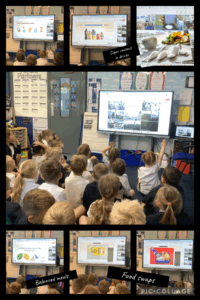
Wednesday – A Visit from d:side
We welcomed a visitor from d:side, who talked to us about our feelings and how to look after our bodies and stay healthy. These sessions are always engaging and informative and the children came away with lots of new ideas for making healthy choices.
Personal Best Challenge
Throughout the week, we took part in our Personal Best Challenge. The children practised throwing and catching a ball, aiming to improve their score each day. It was wonderful to see their determination and how much they improved with daily practice. Well done, Reception – keep it up!
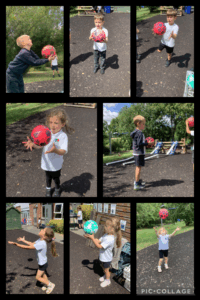
Literacy
This week, we read The Fish Who Could Wish. After reading, the children reflected on their own hopes and wishes as they look ahead to Year One. We had some very thoughtful (and imaginative!) ideas. In our writing, we wrote about some of the different things that we do to keep healthy.
Poetry Picnic
Each week, we learn and recite a new poem together. Saying poems aloud helps us hear the sounds and rhythms of words, which supports early reading skills. This week’s poem is Dance – ask your child to perform it for you!
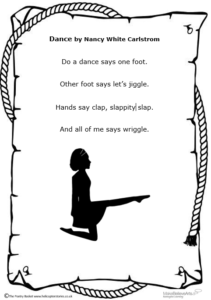
We’ve learned so many poems this year – does your child have a favourite?
Other learning this week included weaving with paper, writing some super sentences and ‘fishing’ for words to practise our phonics skills.
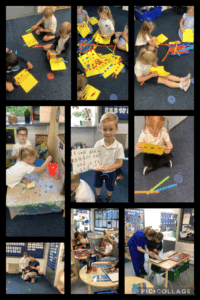
Reminders
Swimming – Sunshine 16th July
Thursday 17th July Beach Party – Look out for a letter in your child’s book bag!
Carrier Bag – Please send a labelled bag on Thursday in order to send home your child’s books.
Summer disco
We had a fantastic time at the school disco on Friday. We danced and sang to some of our favourite music and played lots of games. Thank you to everyone for coming and as always, thank you for the support of FOSP for the end of disco treats.
WE HAD LOTS OF FUN!
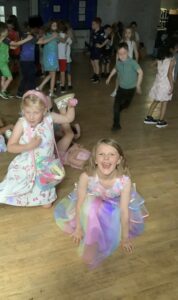
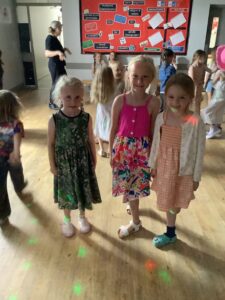
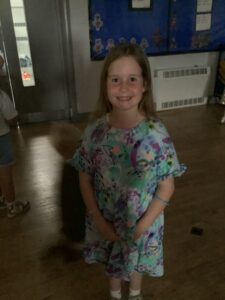
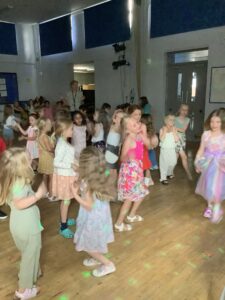
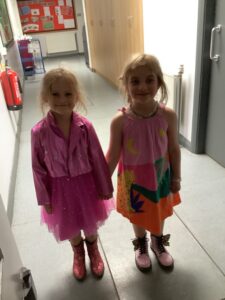
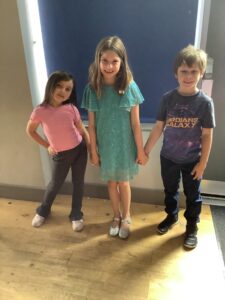
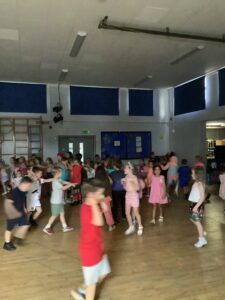
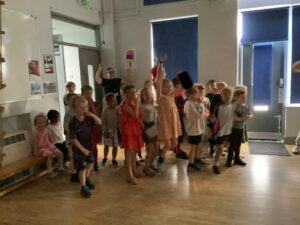
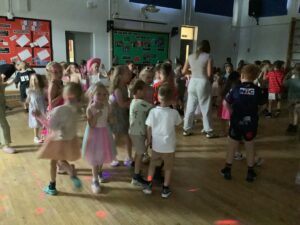
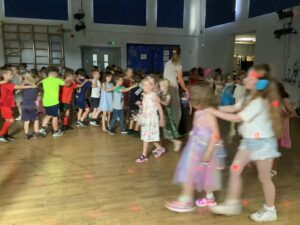
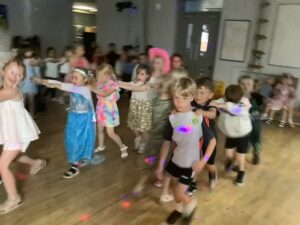
The Snail and the Whale
The Snail and The Whale
We’ve been reading The Snail and The Whale, another book by one of our favourite authors, Julia Donaldson

We’ve been retelling the story in our own words and writing special blackboard messages, just like the snail trail messages in the story!

The book had some fantastic adventurous words to describe landscapes and actions. Our word of the week was humongous. We discussed the meaning of lots of other words too.

Can your child tell you what each of these words mean? They could use the images to remind them.
Transition
On Wednesday, the Reception children had a wonderful visit to their new Year 1 classroom. It was a delightful experience for the children as they met their new teacher and explored their future learning environment.
The children were excited and engaged, participating in fun activities to make them feel welcome and at ease. This visit was a positive step in helping the children transition smoothly into Year 1. They left with big smiles and lots of enthusiasm!
Phonics
Summer 2 week 5 has focused on root word ending in: –er, –est.
Poetry Picnic
Each week we will be learning a new poem. We will recite this poem each day. By saying the poem out loud, we can focus on the sounds and rhythm of each word or line. We talk to the children about how this can help us become better readers.
This week’s poem is Sliced Bread
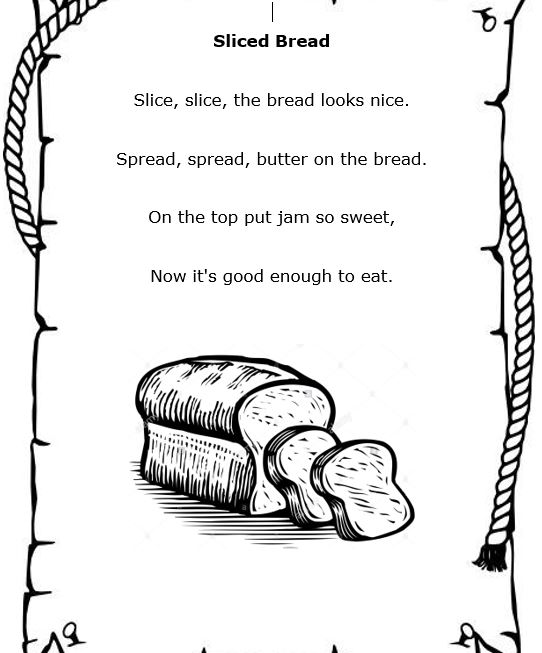
Nell Bank
On Thursday, we set off on our trip to Nell Bank. We began by listening to a story about Pete who liked to be TIDY but maybe a little bit too much.

We worked together safely to clear up a big mess! During this activity, we explored ways to reduce, reuse, and recycle, and discussed what would happen to litter if it was left.
Afterwards, the children had the opportunity to go on a mini-beast hunt to help Pete find lots of worms. Following this, it was time to help Pete make a new home in the woods. One of their favourite parts of the day (outside of lunch, of course) was the water play area.







